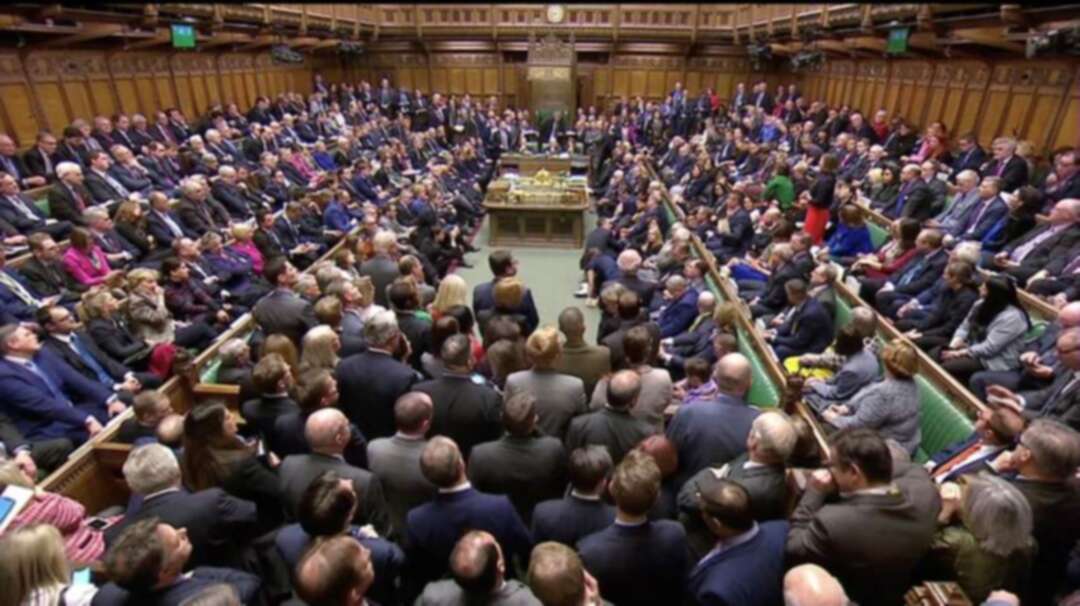-
MPs to resume scrutiny of PM's withdrawal deal

The UK is set to leave the EU on 31 January.
But before Parliament closed for the Christmas recess, MPs gave initial approval to Mr Johnson's bill by 358 votes to 234.
What will MPs debate?
The bill now moves on to the next phase of the parliamentary process, what is known as the committee stage. It will be analysed in detail over the next three days before moving to the Lords.
With the government enjoying a Commons majority of 80, it will not be changed in any way without the support of ministers.
On Tuesday, MPs will debate the 11-month transition period after 31 January, in which the UK will cease to be an EU member but will continue to follow EU rules and contribute to the EU's budget.
The purpose of the transition period is to give time for the UK and EU to negotiate their future relationship.
The UK has said this can be done by the end of 2020 and the bill rules out extending the transition period beyond that point - even if a free trade deal with the EU has not been agreed.
Labour are proposing amendments to ensure Parliament and the devolved nations are consulted during trade talks with the EU, while it also wants the government to aim for close alignment with the EU during the negotiations.
And the SNP have put down an amendment which would exempt Scotland, which voted to stay in the EU, from the provisions of the bill.
MPs will also debate citizens' rights, with Labour, the SNP and the Lib Dems all having submitted amendments seeking to guarantee the rights of the three million or so EU nationals resident in the UK.
Since the Conservatives' election win, a number of changes have been made to the bill including:
- allowing UK courts to reconsider European Court of Justice rulings that have been retained in UK law after Brexit
- removing clauses related to workers' protections - which the government says will be dealt with in other legislation
- removing the requirement for the government's negotiations with the EU position to be approved by MPs
source:BBC
You May Also Like
Popular Posts
Caricature
BENEFIT Sponsors BuildHer...
- April 23, 2025
BENEFIT, the Kingdom’s innovator and leading company in Fintech and electronic financial transactions service, has sponsored the BuildHer CityHack 2025 Hackathon, a two-day event spearheaded by the College of Engineering and Technology at the Royal University for Women (RUW).
Aimed at secondary school students, the event brought together a distinguished group of academic professionals and technology experts to mentor and inspire young participants.
More than 100 high school students from across the Kingdom of Bahrain took part in the hackathon, which featured an intensive programme of training workshops and hands-on sessions. These activities were tailored to enhance participants’ critical thinking, collaborative problem-solving, and team-building capabilities, while also encouraging the development of practical and sustainable solutions to contemporary challenges using modern technological tools.
BENEFIT’s Chief Executive Mr. Abdulwahed AlJanahi, commented: “Our support for this educational hackathon reflects our long-term strategic vision to nurture the talents of emerging national youth and empower the next generation of accomplished female leaders in technology. By fostering creativity and innovation, we aim to contribute meaningfully to Bahrain’s comprehensive development goals and align with the aspirations outlined in the Kingdom’s Vision 2030—an ambition in which BENEFIT plays a central role.”
Professor Riyadh Yousif Hamzah, President of the Royal University for Women, commented: “This initiative reflects our commitment to advancing women in STEM fields. We're cultivating a generation of creative, solution-driven female leaders who will drive national development. Our partnership with BENEFIT exemplifies the powerful synergy between academia and private sector in supporting educational innovation.”
Hanan Abdulla Hasan, Senior Manager, PR & Communication at BENEFIT, said: “We are honoured to collaborate with RUW in supporting this remarkable technology-focused event. It highlights our commitment to social responsibility, and our ongoing efforts to enhance the digital and innovation capabilities of young Bahraini women and foster their ability to harness technological tools in the service of a smarter, more sustainable future.”
For his part, Dr. Humam ElAgha, Acting Dean of the College of Engineering and Technology at the University, said: “BuildHer CityHack 2025 embodies our hands-on approach to education. By tackling real-world problems through creative thinking and sustainable solutions, we're preparing women to thrive in the knowledge economy – a cornerstone of the University's vision.”
opinion
Report
ads
Newsletter
Subscribe to our mailing list to get the new updates!






















